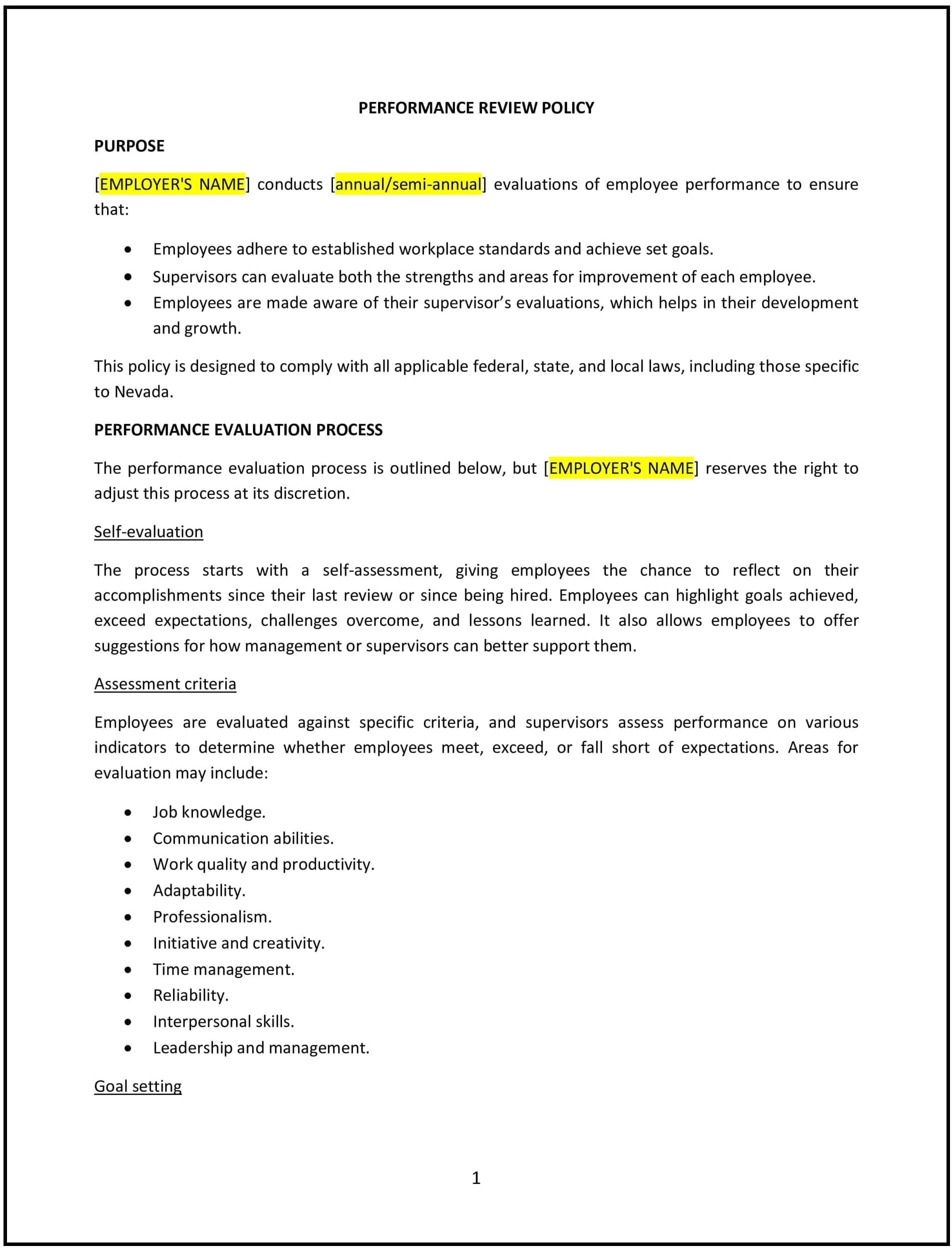Got contracts to review? While you're here for policies, let Cobrief make contract review effortless—start your free review now.

Customize this template for free
Performance review policy (Nevada)
This performance review policy is designed to help Nevada businesses evaluate employee performance consistently and fairly. It provides guidelines for conducting regular performance reviews, setting goals, and offering constructive feedback to promote professional growth and organizational success.
By adopting this policy, businesses can foster a culture of accountability, improve employee engagement, and align individual performance with business objectives.
How to use this performance review policy (Nevada)
- Define review frequency: Specify how often performance reviews will occur, such as annually, semi-annually, or quarterly.
- Outline review criteria: Identify key performance indicators (KPIs) or metrics used to evaluate employee performance, ensuring they align with job descriptions and company goals.
- Establish a structured process: Detail the steps involved in the performance review process, including self-assessments, manager evaluations, and review meetings.
- Provide feedback guidelines: Encourage managers to provide constructive feedback, highlighting strengths, addressing areas for improvement, and setting actionable goals.
- Set development goals: Use reviews to identify opportunities for professional growth, such as training, mentorship, or skill-building programs.
- Ensure transparency: Communicate the purpose, criteria, and process of performance reviews to all employees to promote understanding and trust.
- Document outcomes: Require written documentation of performance reviews, including agreed-upon goals and feedback, to maintain accurate records and support follow-up actions.
- Address disputes: Include procedures for employees to raise concerns or appeal their performance evaluations.
Benefits of using this performance review policy (Nevada)
This policy provides several benefits for Nevada businesses:
- Encourages accountability: Holds employees responsible for meeting performance expectations while offering opportunities for improvement.
- Enhances employee engagement: Promotes open communication and collaboration between employees and managers.
- Aligns performance with goals: Ensures individual efforts contribute to broader organizational objectives.
- Identifies training needs: Highlights areas where employees may benefit from additional resources or support.
- Improves retention: Demonstrates a commitment to employee development, fostering loyalty and job satisfaction.
Tips for using this performance review policy (Nevada)
- Communicate expectations: Share the review process, criteria, and timelines with employees in advance to ensure transparency.
- Train managers: Provide training for managers to conduct effective and unbiased performance reviews.
- Encourage self-assessments: Ask employees to complete self-evaluations to reflect on their achievements and identify areas for growth.
- Follow up on goals: Regularly check in with employees on their progress toward goals established during reviews.
- Update regularly: Revise the policy periodically to reflect changes in company practices, industry standards, or employee feedback.